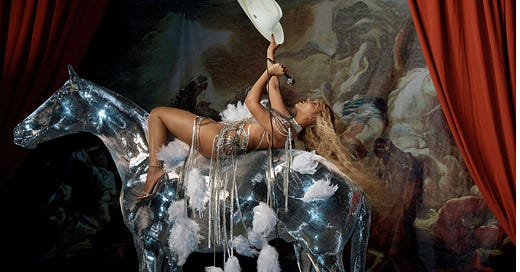I'd always enjoyed Beyoncé's music, from the time when was in Destiny's Child, the essential R&B girl group of the 1990s. That Beyoncé Knowles (now Beyoncé Knowles-Carter, married to Shawn "Jay-Z" Carter) would be a successful solo artist was never in doubt. If she now stands alone in popular culture as Beyoncé, whose eminence in today's R&B/pop/soul is unquestioned, remember she's been working at it for more than 30 years; her solo album debut was Dangerously in Love in 2003, almost 20 years ago. She works hard for the money, and the stature she enjoys.
When my department chair and I decided some years ago that a course I taught at St. John's University, The Journalist as Critic, needed rebranding to increase signups, I half-seriously suggested calling it "The Institute of Beyoncé Studies." I still use that phrase as a teaser in the syllabus for the class now known as Writing Music, Movies, and TV Reviews. In alternate semesters, I teach Writing About Music: Pop, Rap, Rock, and so the…
Keep reading with a 7-day free trial
Subscribe to Critical Conditions by Wayne Robins to keep reading this post and get 7 days of free access to the full post archives.



